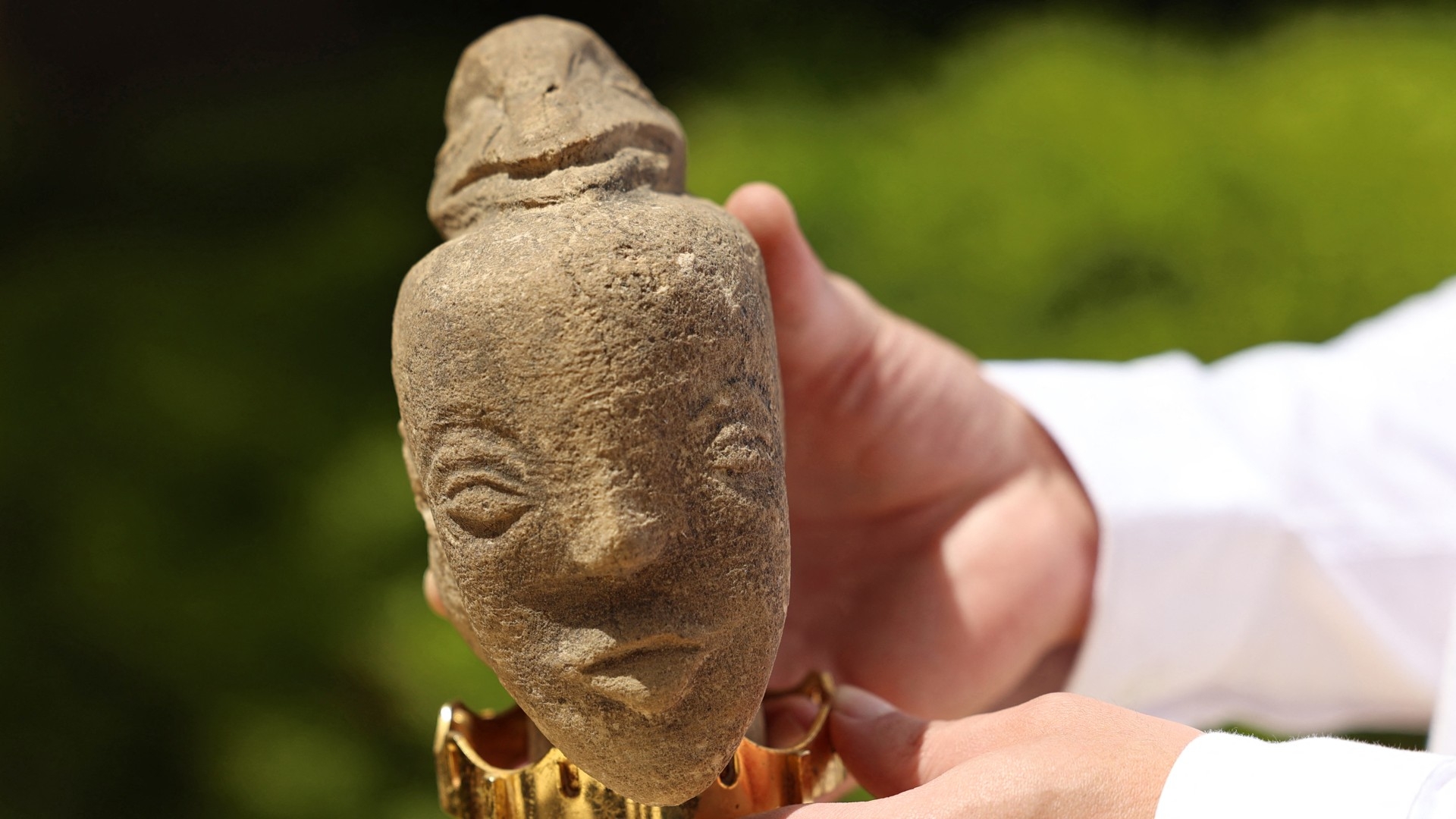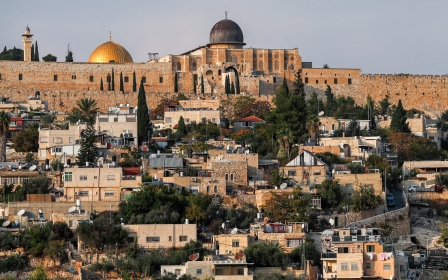Palestinian farmer discovers 4,500 year old goddess statue in Gaza

A farmer digging in Gaza has discovered a stone statue of an ancient goddess dating back 4,500 years, according to Palestinian archeology authorities.
Nidal Abu Eid came across a relic of the head of what is believed to be a Canaanite deity while cultivating his land in Khan Younis, a southern city in the besieged Gaza Strip.
The 22cm limestone carving depicting the goddess “Anat” wearing a crown made of snakes is from around 2,500 BCE, according to the Hamas-run Ministry of Tourism and antiquities in Gaza.
“Anat was the goddess of love, beauty, and war in the Canaanite mythology,” Jamal Abu Rida, director-general of the ministry, said in a press conference on Tuesday.
He added that Palestine, and in particular Gaza, had passed through many human civilisations including Canaanite, Roman, Byzantine and Islamic, “which invalidate[s] the Zionist claim that the land of Palestine is a land without a people for a people without a land.
“Such discoveries prove that Palestine has civilisation and history, and no-one can deny or falsify this history,” Abu Rida said. “This is the Palestinian people and their ancient Canaanite civilisation.”
Farmer Abu Eid said that he had found the muddied artefact by chance, and washed it clean with water.
“We realised that it was a precious thing, but we didn't know it was of such great archaeological value,” he told the BBC. “We thank God, and we are proud that it stayed in our land, in Palestine, since the Canaanite times.”
The ancient artefact is now on display at Qasr al-Basha, a former palace during the Ottoman and Mamluk periods in Gaza’s Old City which now serves as a museum.
In February, construction workers in northern Gaza uncovered a 2,000-year-old Roman-era cemetery that included at least 34 tombs.
A month earlier, the antiquities ministry announced that it had renovated and restored a Byzantine church dating back to 500 CE with the help of foreign donors, in an effort to boost domestic tourism.
Despite its ancient artefacts and historic sites, there is virtually no international tourism into Gaza.
Israel and Egypt have maintained a tight blockade on the territory since Hamas won legislative elections in 2006 and took control of the enclave, with the movement of people and goods in and out of Gaza severely restricted.
Almost a year on since Israel's most recent assault on the enclave which killed at least 248 Palestinians, much of the terrority remains in ruins, with only 5 percent of essential reconstruction having been completed.
Middle East Eye propose une couverture et une analyse indépendantes et incomparables du Moyen-Orient, de l’Afrique du Nord et d’autres régions du monde. Pour en savoir plus sur la reprise de ce contenu et les frais qui s’appliquent, veuillez remplir ce formulaire [en anglais]. Pour en savoir plus sur MEE, cliquez ici [en anglais].





